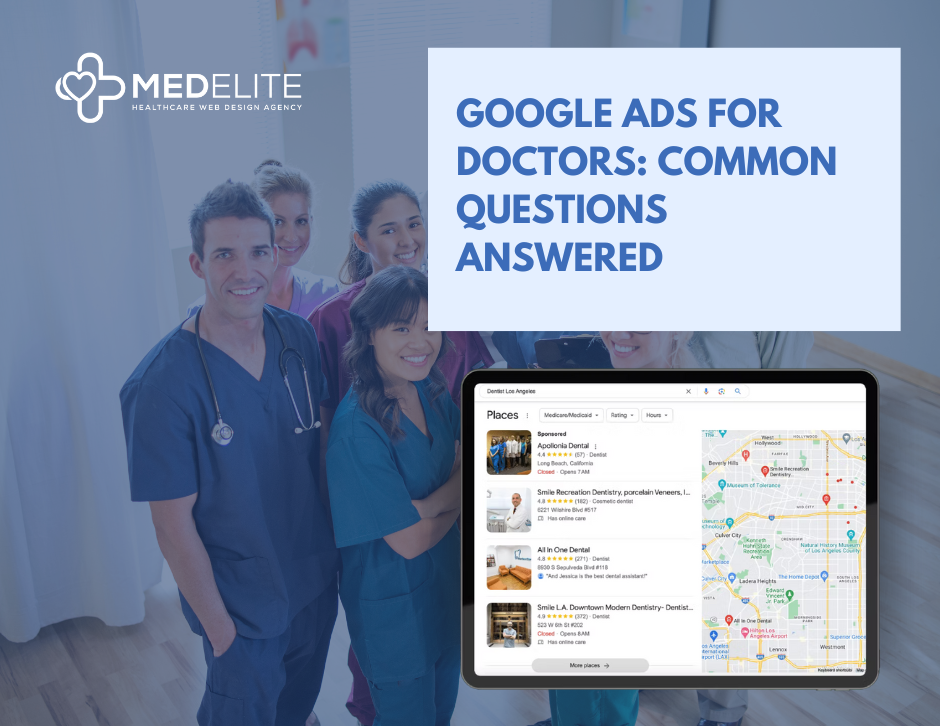How Much Does a Healthcare Website Design Cost?
- Marta Alexandrovna

- Mar 5, 2024
- 3 min read
In today's digital age, having a strong online presence is no longer a luxury for healthcare clinics – it's a necessity. Patients are increasingly turning to the internet to research healthcare providers and schedule appointments. But with a vast array of healthcare website design and medical marketing agencies out there, the question remains: how much does it actually cost to have a website, and is it worth the investment?

The truth is, the cost of a healthcare website can vary greatly depending on several factors, including:
Website complexity: A basic website with a few pages will naturally cost less than a complex site with interactive features and appointment booking functionality.
Design customization: Do you want a completely custom-designed website, or are you comfortable with a template-based approach?
Features and integrations: Appointment scheduling, online forms, secure patient portals – all these features add to the overall cost.
Ongoing maintenance: Do you need ongoing support for website updates, security measures, and content management?
Here's a more realistic range for basic healthcare websites: a simple website with essential features like contact information, service descriptions, and doctor profiles might cost anywhere from $3,000 to $7,000, while a more complex and feature-rich website could range from $10,000 to $25,000 or even more.
Now, let's talk about the real question: is it worth it? Absolutely! Here's why:
Return on Investment (ROI) Powerhouse:
A well-designed healthcare website with strong medical marketing strategies is an investment that pays off in tangible ways. Consider this:
Increased patient acquisition: Imagine a potential patient searching for a cardiologist in your area. A well-optimized website with clear information and strong healthcare SEO (Search Engine Optimization) makes your clinic appear higher in search results, leading them right to your door (or rather, website).
Improved brand reputation: A professional website with high-quality content and patient testimonials builds trust and establishes your clinic's expertise.
Enhanced patient engagement: Offer valuable resources, appointment scheduling options, and online forms – all on your website – to streamline the patient experience and keep them engaged.
Cost-effective marketing: Your website acts as a central hub for your online marketing efforts. Targeted advertising campaigns and social media integration can drive traffic to your website, ultimately converting visitors into patients.
The Power of More Pages: Here's a secret weapon: SEO loves websites with multiple, informative pages. By dedicating a page to each of your services (pediatrics, dermatology, etc.), you not only provide valuable information to potential patients but also increase your website's ranking for relevant keywords.
Real ROI Examples:
Studies have shown that healthcare clinics with well-designed websites can experience significant increases in patient bookings and revenue. Here are some real-world examples:
Source: According to a Clutch survey (https://clutch.co/), 73% of patients say a website's design and ease of use influence their decision to choose a provider. This highlights the importance of a user-friendly and visually appealing website in attracting patients.
Source: Another study by Software Advice (Source: https://www.getapp.com/healthcare-pharmaceuticals-software/healthcare-crm/f/lead-generation/) highlights that 60% of patients schedule appointments online, emphasizing the importance of a website with user-friendly appointment scheduling features.
The Takeaway:
Investing in a professional healthcare website design and medical marketing strategy may seem like a cost at first, but it's truly an investment in your clinic's future. A well-crafted website attracts new patients, builds trust, and streamlines operations, all leading to a healthier bottom line. Remember, your website is your digital storefront – make sure it reflects the quality care you provide!





Comments